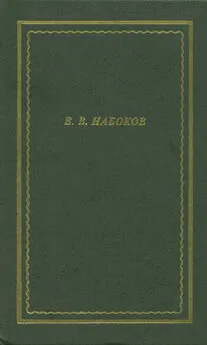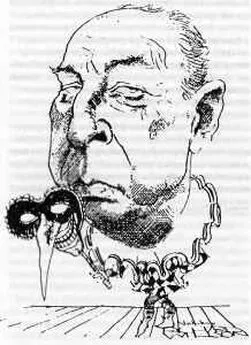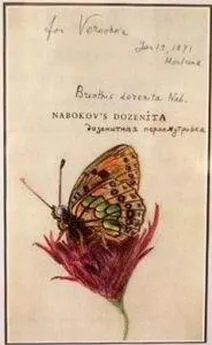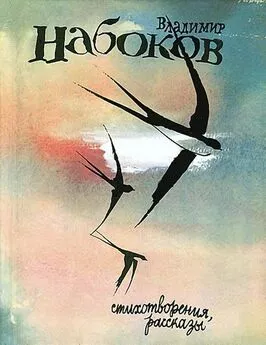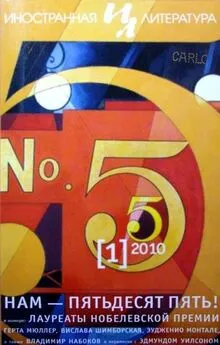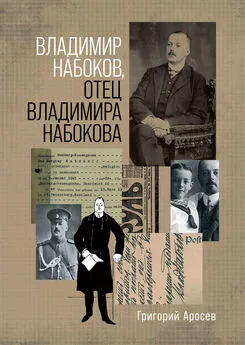Владимир Набоков - Стихотворения
- Название:Стихотворения
- Автор:
- Жанр:
- Издательство:Академический проект
- Год:2002
- Город:СПб.
- ISBN:5-7331-0160-1
- Рейтинг:
- Избранное:Добавить в избранное
-
Отзывы:
-
Ваша оценка:
Владимир Набоков - Стихотворения краткое содержание
Наиболее полное из всех до сих пор изданных в России собраний поэтических произведений крупнейшего русского/американского писателя XX века. В связи с уникальной спецификой двуязычного творчества Набокова в книге публикуются также его стихи, написанные на английском языке, и поэтические переводы на английский язык классических текстов русской поэзии (Пушкин, Лермонтов, Фет, Тютчев, Ходасевич). Публикуется также ряд переводов на французский язык и стихотворения из романов.
Стихотворения - читать онлайн бесплатно полную версию (весь текст целиком)
Интервал:
Закладка:
And though some roving cloud may stain
with glancing drops those leaden leaves,
the dripping of a poisoned rain
is all the burning sand receives.
But man sent man with one proud look
towards the tree, and he was gone,
the humble one, and there he took
the poison and returned at dawn.
He brought the deadly gum; with it
he brought some leaves, a withered bough,
While rivulets of icy sweat
ran slowly down his livid brow.
He came, he fell upon a mat,
and reaping a poor slave's reward,
died near the painted hut where sat
his now unconquerable lord.
The king, he soared his arrows true
in poison, and beyond the plains
dispatched those messengers and slew
his neighbors in their own domains.
442. A SCENE FROM «THE COVETOUS KNIGHT» {*}
his rendez-vous with some evasive harlot,
or with the goose seduced by him, thus I
have dreamt all day of coming down at last
in vaulted dimness to my secret chests.
The day was good: this evening I can add
to coffer six (which still is not quite sated)
some recently collected gold: a fistful,
a trifle, you might say, but thus my treasure
a trifle is increased. There is some story
about a Prince who bade his warriors bring
a handful each of earth, which formed a hillock
which swelled into a mountain, and the Prince
from this proud height could merrily survey
the dale white-dotted with his tented army,
the many sails that sped upon the sea.
So bit by bit I have been bringing here
my customary tithe into this vault,
and heaped my hill, and from its eminence
I now survey my vassaldom at leisure.
And who is not my vassal? Like some daemon
from here in private I can rule the world;
let me just wish — and there will rise a palace;
amid the marvels of my terraced lawns
a swarm of Nymphs will airily assemble;
the sacred Nine will come with mask or lute;
unshackled Genius labor as my bondsman,
and noble merit, and the sleepless drudge
wait with humility till I reward them.
I'll whistle, and behold: low-bending, cringing,
in creeps Assassination, blood-bespattered,
and while it licks my hands it will be watching
my eyes to read in them the master's order.
All is to me subjected, I to naught.
I am above desiring; I am tranquil:
I know my domination, and this knowledge
I deem sufficient.
It may seem a little,
but what incalculable human cares,
deceptions, tears, entreaties, imprecations,
have weighty representatives here seated!
Where was that old doubloon?.. Here 'tis. This evening
a widow paid it me — though only after
she'd stood, with her three children, many hours
under my window, on her knees and wailing.
It rained, and ceased to rain, and rained again:
the shamming creature never budged. I might have
sent her away, but a faint something told me
that she had brought the sum her husband owed
and would not care to be in jail next day.
And this one? this was brought me by Thibault:
whom did he get it from, the fox, the loafer?
Stole it, I wager; or perhaps… somewhere,
at nightfall, on the highway, in a coppice —
Ah, yes! if all the tears, and blood and sweat,
that have been shed for what is in my keeping,
out of deep earth might suddenly gust forth
we'd have a second flood, — and with a splutter
I'd perish in my trusty vaults.
And now —
Strange — every time I want to open one
of my good chests, I feel all hot and shaky:
not fear (oh, no! whom should I fear? I have
my gallant sword: one metal guards the other
and answers for it), but a heart-invading
mysteriously enveloping oppression…
Physicians claim that there exist queer people
who find in homicide a kind of pleasure;
when I insert and turn the key, my feelings
are similar, I fancy, to what they
must feel when butchering their victims: pleasure
and terror mingled
This is lovely, lovely…
Go home, you've had your fill of worldly frisking
and served your time with human needs and passions.
Here you will sleep the sleep of peace and power,
as gods do sleep in Heaven's dreamy depth.
To-night I wish to have a feast in secret: —
a candle bright in front of every chest,
and all of them wide-open, and myself
with eyes aglow amid their brimming glory.
Now I am king! What an enchanting shine!
A mighty realm has now become my manor;
here is my bliss, my blazon, and my banner!
Now I am king! — But who will next enjoy
this bounty when I die? My heir will get it!
A wastrel, a disreputable boy,
by ribald fellow-revellers abetted!
With my last sigh, him, him! this vault will hear
come stamping down into its gentle silence,
with crowds of fawning friends, rapacious courtiers;
and having plucked the keys from my dead fist
he will unlock chest after chest with glee,
and all the treasures of my life will stream
through all the holes of tattered satin pockets.
Thus will a sot destroy these holy vessels,
thus mud will drink an oil for kingly brows,
thus he will spend — And by what right, I ask you?
Did I perchance acquire all this for nothing?
Or with the ease of a light-hearted gambler
that rattles dice and grabs his growing winnings?
Who knows how many bitter limitations,
what bursting passions curbed, what inner gloom,
what crowded days and hollow nights — my wealth
has cost me? Or perhaps my son will say
that with a hoary moss my heart is smothered,
that I have had no longings, and what's more,
that conscience never bit me? Grizzly conscience!
the sharp-clawed beast that scrapes in bosoms; conscience,
the sudden guest, the bore that does the talking,
the brutish money-lender; worst of witches,
that makes the moon grow dark, and then the grave-stones
move restlessly, and send their dead to haunt us!
Nay, suffer first and wince thy way to riches,
then we shall see how readily my rascal
will toss to winds what his heart-blood has bought.
Oh, that I might conceal this vaulted chamber
from sinful eyes! oh, that I might abandon
my grave and, as a watchful ghost, come hither
to sit upon my chests, and from the quick
protect my treasures as I do at present!
443. FROM «A FEAST DURING THE PLAGUE» {*}
Pushkin's version of a scene in Wilson's tragedy «The City of the Plague»
remind you of a man we all knew well,
a man whose quiddities and funny stories,
smart repartees and pungent observations,
— made with a solemn air that was so pleasing —
lent such a sparkle to the table talk
and helped to chase the gloom which nowadays
our guest the Plague unfortunately casts
over the minds of our most brilliant wits.
Two days ago our rolling laughter greeted
the tales he told; t'would be a sorry jest
if we forgot while banquetting to-day
our good old Jackson! Here his armchair gapes;
its empty seat still seems to be awaiting
the wag; but he, alas, has left already
for a cold dwelling-place beneath the earth.
Though never was so eloquent a tongue
doomed to keep still in a decaying casket,
we who remain are numerous and have
no reason to be sorrowful. And so
let me suggest a toast to Jackson's spirit,
a merry clash of glasses, exclamations,
as if he where alive.
to drop out of our ranks. In silence let us
drink to his memory.
of native songs reveals a wild perfection:
sing, Marry, something dolorous and plaintive
that afterwards we may revert more madly
to merriment — like one who has been torn
from a familiar world by some dark vision.
was lovely to behold;
our bonny church on Sunday
was full of young and old;
our happy children's voices
rang in the noisy school;
in sunny fields the reaper
swung fast his flashing tool.
But now the church is empty;
the school is locked; the corn
bends overripe and idle;
the dark woods are forlorn;
and like charred ruins the village
stands stricken on its hill:
no sound; alone the churchyard
is full and never still.
A new corpse every minute
is carried in with dread
by mourners loudly begging
God's welcome for the dead.
A new hole every minute
is needed for their sleep,
and tombs and tombs together
huddle like frightened sheep.
So if an early gravestone
must crown my springtime bright,
you whom I loved so dearly,
whose love was my delight, —
to your poor Jenny's body,
I pray, do not come near,
kiss not her dead lips; follow
with lagging steps her bier.
And after I am buried, —
go, leave the village, find
some place where hearts are mended
and destiny is kind.
And when the Plague is over
visit my dust, I pray…
But, even dead, will Jenny
beside her Edmund stay.
we thank you all for this melodious moan.
In former days a similar infection
had visited, it seems, your hills and valleys,
and one could hear most piteous lamentations
sounding along the rivers and the brooks
which now so peacefully and gaily tumble
through the wild paradise of your dear land;
and that dark year in which so many perished,
so many gallant, good and comely souls,
has left but a vague memory that clouds
the elemental minstrelry of shepherds
with pleasing plaintiveness. Nothing, I swear,
so saddens us amid life's animation
as dreamy sounds that dreamy hearts repeat.
of the small cottage where my parents dwelt!
Dearly they used to love their Mary's voice.
Behind my song I felt as if I listened
to my old self singing in the bright doorway:
my voice was sweeter in those days: it was
the golden voice of innocence.
are nowadays old-fashioned; but one still
finds simple souls eager to melt when seeing
a woman weep: they blindly trust her tears.
She seems to be quite sure that her wet eyes
are most enchanting; and if just as highly
she ranked her laughter then you may be sure
she'd always titter. Walsingham had chanced
to praise the shrill-voiced Northern beauties; so
forthwith she wails her head off. I do hate
that yellow color of her Scottish hair.
a warrior's heart judging by her expressions —
but evidently cruelty is weaker
than tenderness: strong passions shy at shadows.
Some water, Mary, on her face. She's better.
recline upon my breast.
appeared to me: all black with white eyes rolling,
he beckoned me into his cart where lay
piled bodies of dead men who all were lisping
a horrible, a most unearthly tale.
Oh, tell me please — was it a dream I dreamt
or did the cart pass really?
laugh in away. Though all the street is ours
— a quiet spot secure from death's intrusion,
the haunt of revellers whom none may trouble —
but… Well, you see, that black cart has the right
to roll and creak down any street in chooses
and we must let it go its way. Look here,
friend Walsingham: to cut short all discussions
that lead to women swooning, sing us something,
sing us a liberal and lively song,
— not one inspired by long mists of the Highlands
but some unbridled bacchanalian stuff
that sprung to life from wine-foam at a banquet.
a hymn in honor of the plague. I wrote it
the other night as soon as we had parted:
I was possessed by a strange urge to rhyme
which never had I felt before. So listen.
My husky voice will suit this kind of poem.
In honor of the Plague? Good. Bravo, bravo!
upon us with his hoary troops,
leading against us all his grim
legions of frost and snow, —
logs crackling brightly laugh at him
and festive wine cups glow.
Her awful Majesty the Plague
now comes at us with nothing vague
about her aims and appetite;
with a grave-digger's spade
she knocks at windows day and night.
Where should we look for aid?
Интервал:
Закладка:
